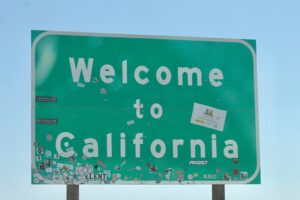February 7, 2017
 A recent Spokeo-based challenge to a plaintiff’s standing in a Telephone Consumer Protection Act (“TCPA”) lawsuit was denied by a federal court in the Northern District of Illinois. With the denial of the motion to dismiss, the TCPA lawsuit, which involves allegations that a debt collector’s use of an automatic telephone dialing system violated the TCPA, will proceed with additional litigation.
A recent Spokeo-based challenge to a plaintiff’s standing in a Telephone Consumer Protection Act (“TCPA”) lawsuit was denied by a federal court in the Northern District of Illinois. With the denial of the motion to dismiss, the TCPA lawsuit, which involves allegations that a debt collector’s use of an automatic telephone dialing system violated the TCPA, will proceed with additional litigation.
Is this Court’s decision regarding a Spokeo-based challenge to a TCPA lawsuit typical of federal courts?
A distinct split in authority is taking root among district courts across the country with regard to judicial treatment of Spokeo-based legal challenges to TCPA lawsuits. Some courts have used the Spokeo decision to find that simply alleging receipt of telemarketing calls in violation of the TCPA, without more, is insufficient to survive a Spokeo challenge. However, other courts, like the court in the Northern District of Illinois, have taken the opposition position. These courts typically have been inclined to find that receipt of an unsolicited call on one’s cell phone placed through an autodialer is precisely the injury that Congress intended to remedy through passage of the TCPA and, thus, sufficient for Spokeo purposes. This decision to dismiss a Spokeo-based challenge to TCPA claims follows a recent trend wherein the federal courts in Illinois and throughout the Seventh Circuit have established themselves as increasingly more hostile to Spokeo– based challenges. It is, nevertheless, apparent that the relative strength of Spokeo-based challenges to TCPA lawsuits will continue to remain unsettled and in flux until such time as the U.S. Supreme Court is presented with an opportunity to revisit the issue or the TCPA regulations are otherwise revised.
Protect Your Business from TCPA Lawsuit Liability
This case demonstrates the continued aggressive pursuit of telemarketers for alleged autodialer-related TCPA violations in the marketing space. Having lost its Spokeo-based challenge, the marketer in this case will be exposed to mounting legal fees in the continued litigation of the TCPA lawsuit, as well as a potentially significant judgment on TCPA liability claims. This case should serve to reinforce the notion that, in today’s regulatory environment, it is imperative to have telemarketing practices and procedures examined by experienced counsel in order to avoid potentially disastrous consequences in the event that a class action plaintiff or federal regulator brings a TCPA lawsuit for alleged telemarketing-related violations.
If you are interested in learning more about this topic, need to review your telemarketing practices and procedures or if you are facing an investigation from the FCC or other regulatory agency, please e-mail us at info@kleinmoynihan.com, or call us at (212) 246-0900.
The material contained herein is provided for information purposes only and is not legal advice, nor is it a substitute for obtaining legal advice from an attorney. Each situation is unique, and you should not act or rely on any information contained herein without seeking the advice of an experienced attorney.
Attorney Advertising
Court Finds Nuisance to be Concrete Injury Under the TCPA
Blue Shield Avoids TCPA-Related Liability
How Will the Supreme Court’s Spokeo Decision Affect TCPA Lawsuits?



